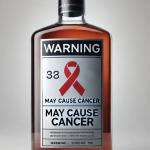Join Cameron English and Dr. Chuck Dinerstein on Episode 106 of the Science Dispatch podcast as they discuss:
public health
RFK Jr. makes several claims that resonate with the American public, primarily because he’s right.
Join Cameron English and Dr. Chuck Dinerstein on Episode 104 of the Science Dispatch podcast as they discuss:
Join Cameron English and Dr. Chuck Dinerstein on Episode 103 of the Science Dispatch podcast as they discuss:
Join Cameron English and Dr. Chuck Dinerstein on Episode 102 of the Science Dispatch podcast as they discuss:
Alcohol has once again made headlines, this time with a warning that is likely giving industry executives sleepless nights. Dr. Vivek Murthy, the U.S.
Join Cameron English and Dr. Chuck Dinerstein on Episode 101 of the Science Dispatch podcast as they discuss:
Join Cameron English and Dr. Chuck Dinerstein on Episode 97 of the Science Dispatch podcast as they discuss:












